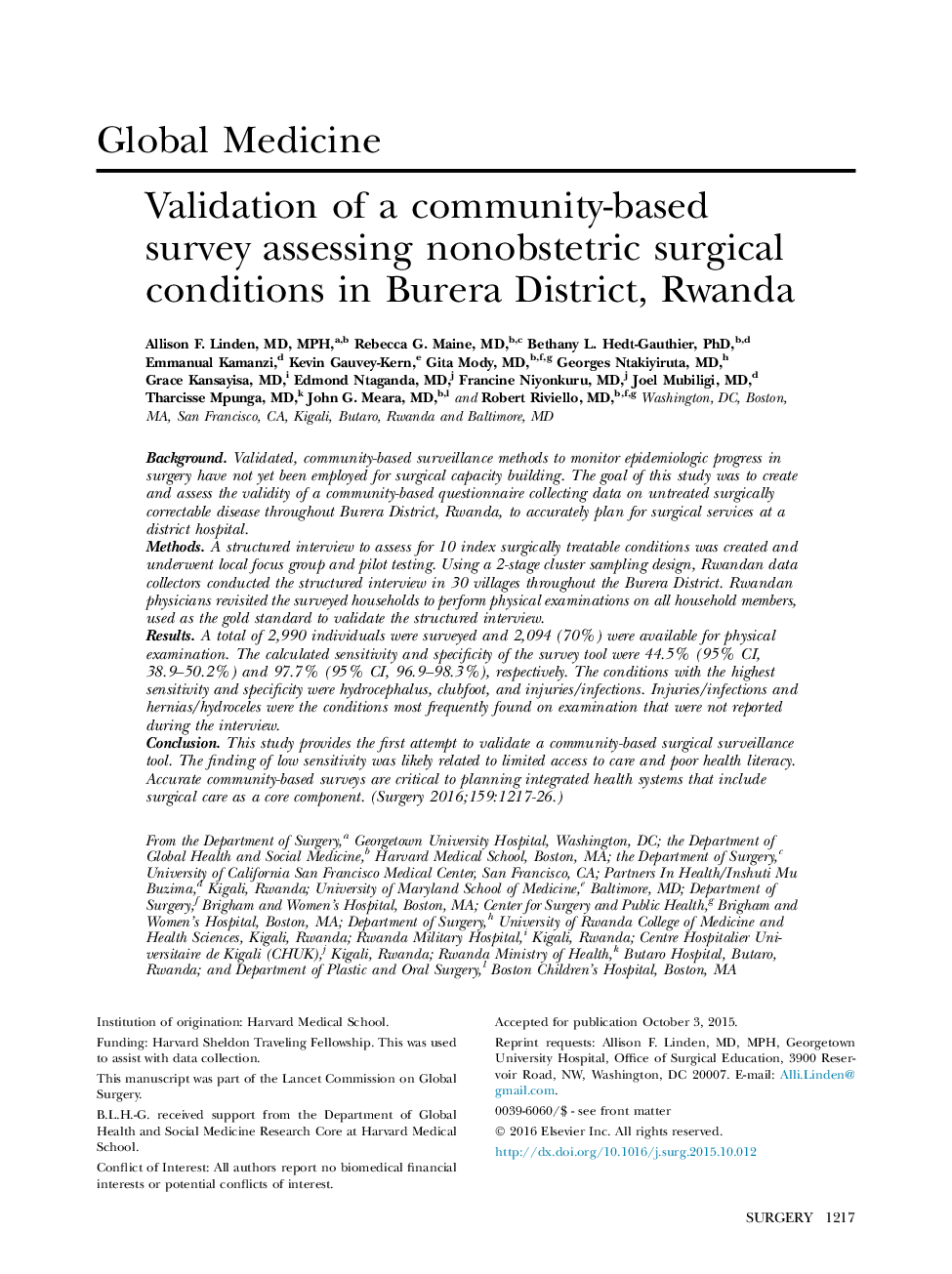| Article ID | Journal | Published Year | Pages | File Type |
|---|---|---|---|---|
| 4306512 | Surgery | 2016 | 10 Pages |
BackgroundValidated, community-based surveillance methods to monitor epidemiologic progress in surgery have not yet been employed for surgical capacity building. The goal of this study was to create and assess the validity of a community-based questionnaire collecting data on untreated surgically correctable disease throughout Burera District, Rwanda, to accurately plan for surgical services at a district hospital.MethodsA structured interview to assess for 10 index surgically treatable conditions was created and underwent local focus group and pilot testing. Using a 2-stage cluster sampling design, Rwandan data collectors conducted the structured interview in 30 villages throughout the Burera District. Rwandan physicians revisited the surveyed households to perform physical examinations on all household members, used as the gold standard to validate the structured interview.ResultsA total of 2,990 individuals were surveyed and 2,094 (70%) were available for physical examination. The calculated sensitivity and specificity of the survey tool were 44.5% (95% CI, 38.9–50.2%) and 97.7% (95% CI, 96.9–98.3%), respectively. The conditions with the highest sensitivity and specificity were hydrocephalus, clubfoot, and injuries/infections. Injuries/infections and hernias/hydroceles were the conditions most frequently found on examination that were not reported during the interview.ConclusionThis study provides the first attempt to validate a community-based surgical surveillance tool. The finding of low sensitivity was likely related to limited access to care and poor health literacy. Accurate community-based surveys are critical to planning integrated health systems that include surgical care as a core component.
